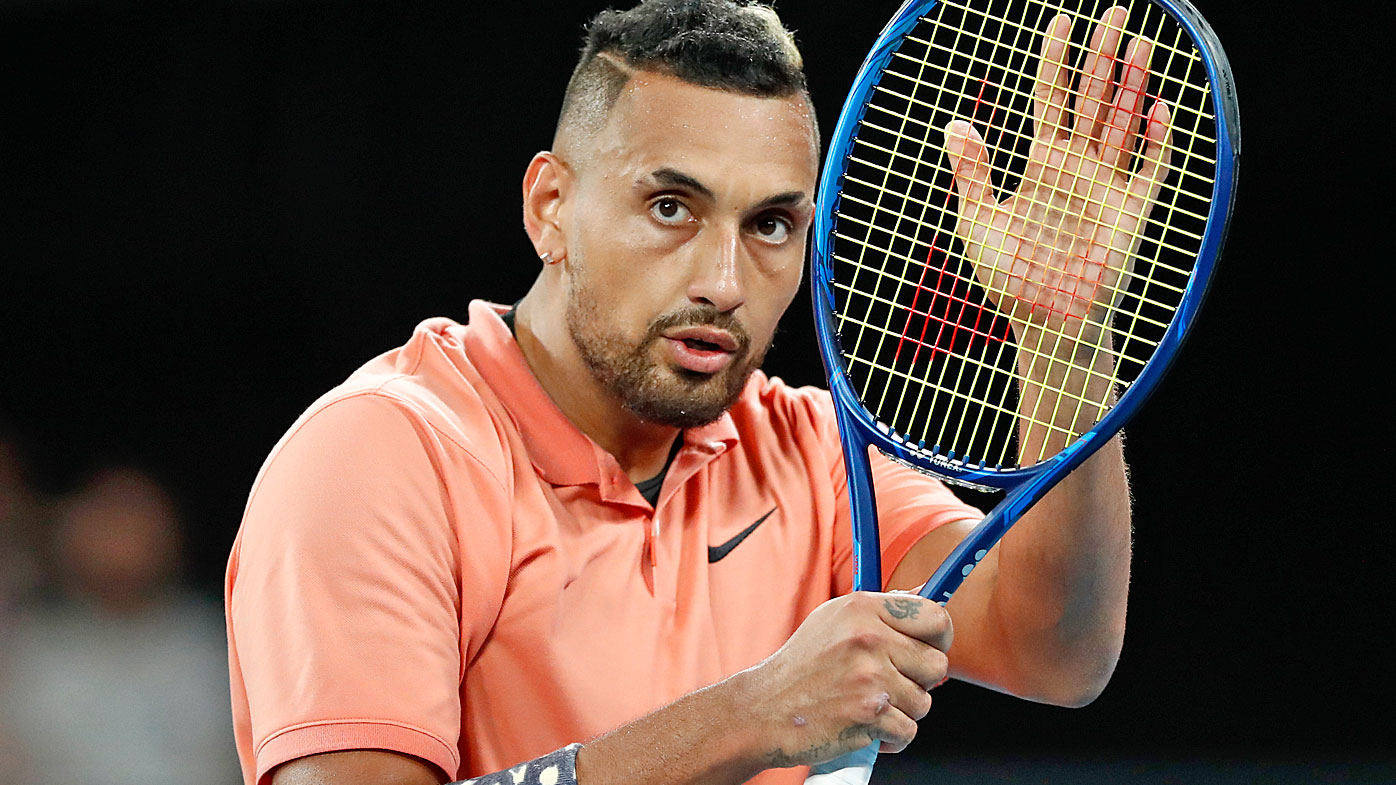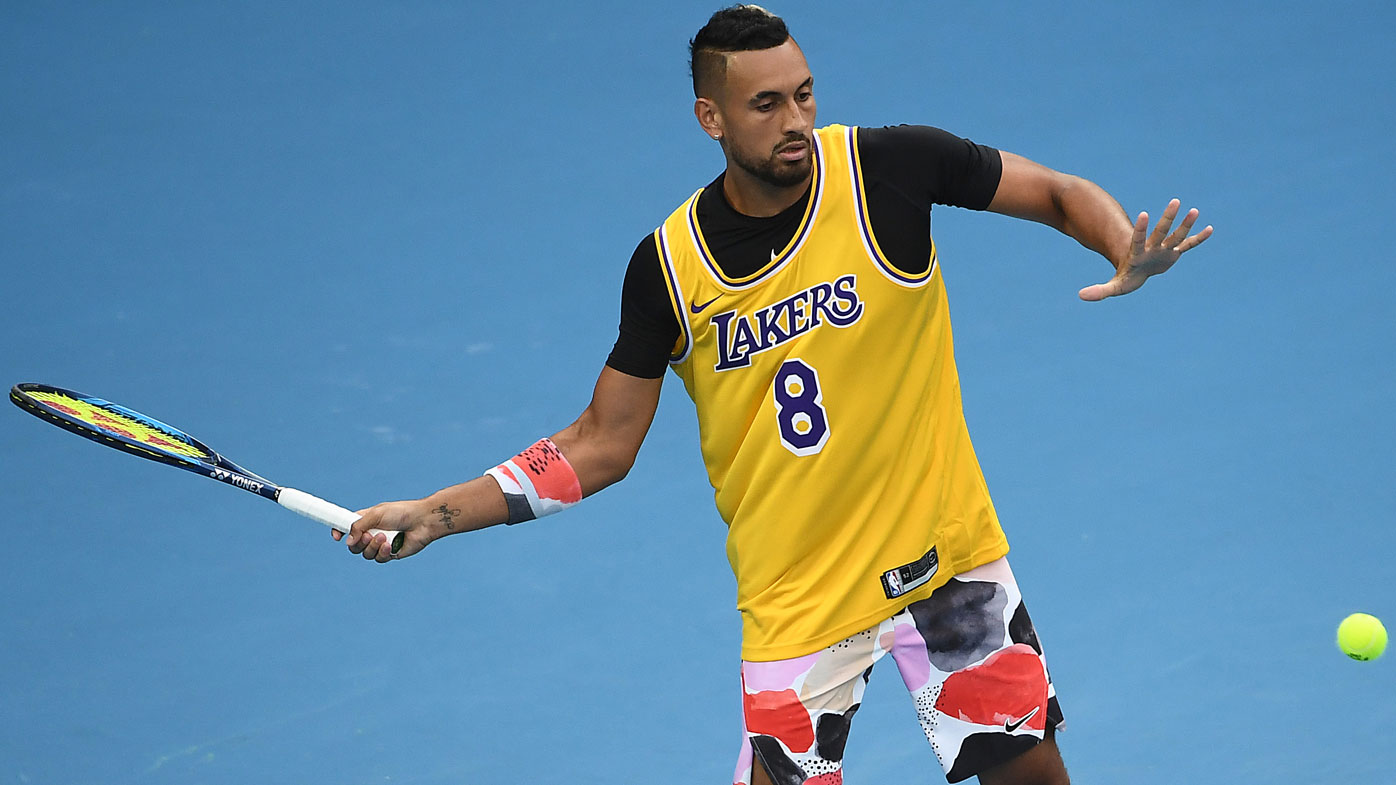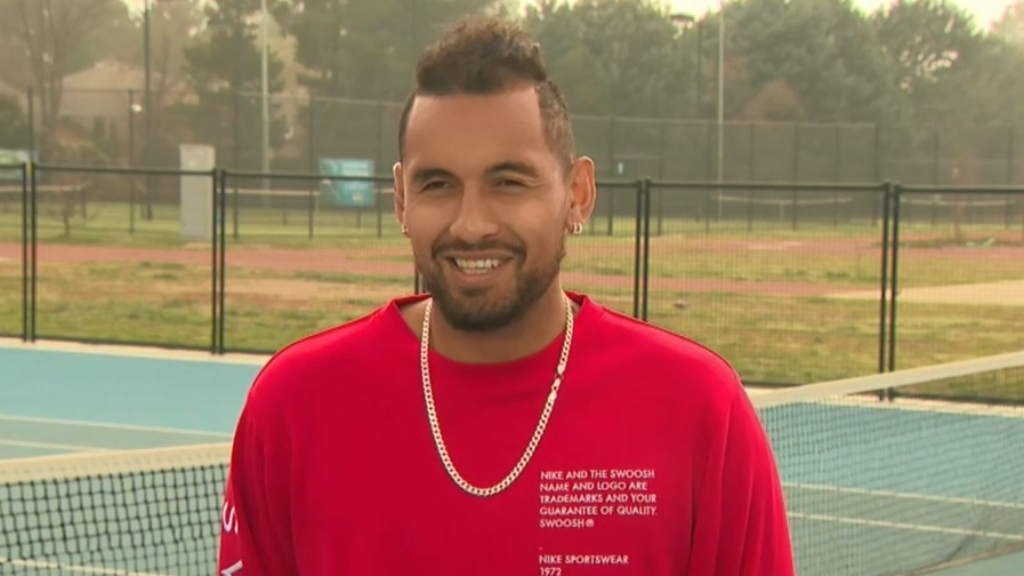Polarising Aussie tennis star Nick Kyrgios has spoken about his battle with depression and relishing his time back home, away from the "lonely" life as a professional on tour.
"On tour there's a seven-month block when I don't get to see my family or be home, so I'm really taking advantage of everything going on at the moment," Kyrgios said in an interview with News Corp while back in the ACT.
"I don't think people understand how lonely tennis can be. You're out there on the court on your own. You can't really talk to anyone. You have to figure things out for yourself. I did struggle with that."
Kyrgios earned widespread criticism in recent years over constant declarations that he didn't enjoy the sport of tennis, but he said that came from the relentless grind which became overwhelming and pushed him into depression.
"When I was struggling - and it wasn't just about tennis - there were moments when I was seriously depressed," the 25-year-old said.
"I remember waking up in Shanghai one year and it was 4pm and I was still in bed, curtains closed. I didn't want to see the light of day.

"I felt like no-one wanted to know me as a person, they just wanted to get a hold of me as a tennis player and use me. I didn't feel like I could trust anyone. It was a lonely, dark place. And things came from that.
"A lot of people were putting pressure on me, I put a lot of pressure on myself. I just lost joy for the game and I was spiralling out of control. I fell into depression because of the things I thought I had to be. I was afraid to go out and talk to people because I thought I'd let them down because I wasn't winning matches."
Kyrgios defended his sometimes emotional, heart-on-his-sleeve approach on court too.
"I've always been an emotional tennis player," Kyrgios said.
"When I was younger, if I was losing, I would cry or break a tennis racquet.
"Yes, I do show my emotions more than others. And yes, breaking a racquet is bad, but it's not terrible."
"There are tennis players who live and breathe tennis, and that's fine. I'm not saying that's wrong or right. But when people say, 'He doesn't want it badly enough' or 'He's not a champion'... Well, maybe. But I've reached a level of freedom in my life when I really don't care what anyone thinks of me," he said.

The world No.45's situation prompted him to seek professional help and he got rid of his old management and adopted a more relaxed training regimen without a coach.
"I want to prove you can do it your way," he said of the decision.
"Obviously, you have to work hard, but you can go your own path."
Kyrgios said he had no regrets about choosing tennis over his other sporting obsession, basketball, and is eager to get back out on the court soon, hopefully at the 2021 Australian Open in January.
"Nothing beats playing in some of the best parts of the world against tough opponents and doing all the work off the court to have success. I'm definitely missing it. But I don't live and breathe tennis," he said.
"I know my tennis career will come to an end, and I'm OK with that. I'm not going to say I could have worked harder, played more tournaments, done this or that. I love being at home with my family and my girlfriend, and working with my foundation and helping the community. There are plenty of other things I love doing."

Kyrgios also opened up about his charitable endeavours helping bushfire victims and youth tennis through his foundation and even his personal donations to Canberra residents during the COVID-19 pandemic, where he would buy $8,000 worth of groceries and distribute them to people who were struggling financially.
He said his venture into such charitable initiatives have helped him gain a bit more perspective about his position and influence as a high-profile athlete.
"The public in Australia were starting to understand what I was about, rather than just tennis," Kyrgios said of his January ace donations to bushfire victims.
"I've lost my way a lot," he said of his motivation to form the NK Foundation.
"I felt alone in a sea of people. I didn't feel like I could talk to anyone about my feelings. I was fighting a lot of things and I didn't feel like I had a home because I was always travelling. I don't want to lose that feeling [of security] ever again - and I want to provide that to kids."
If you or anyone you know needs immediate support, contact Lifeline on 13 11 14 or via lifeline.org.au. In an emergency, call 000.
from WWOS https://ift.tt/3kaEOEs


No comments:
Post a Comment